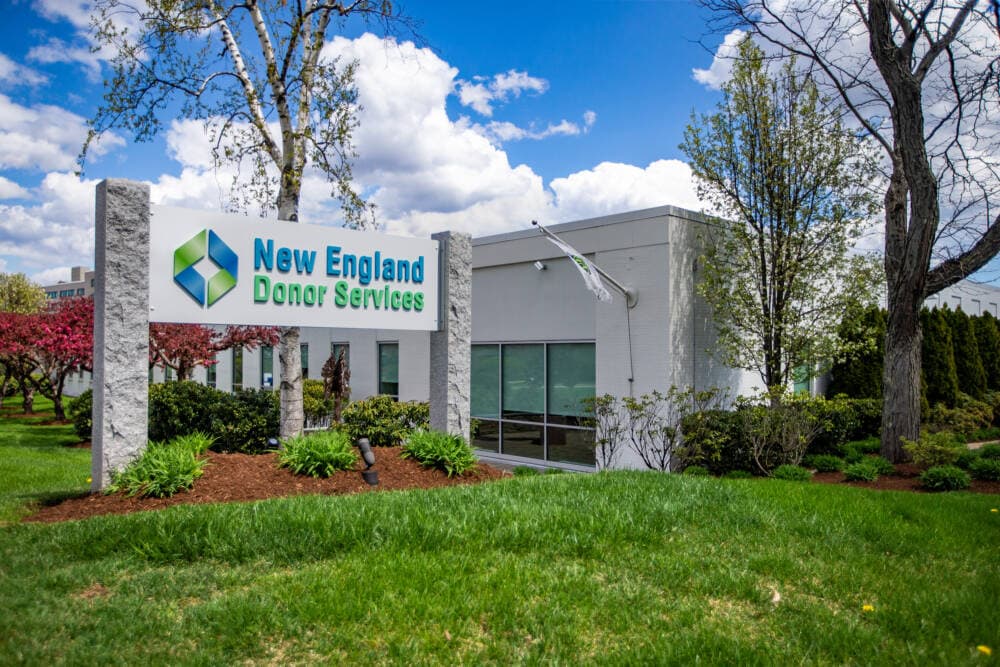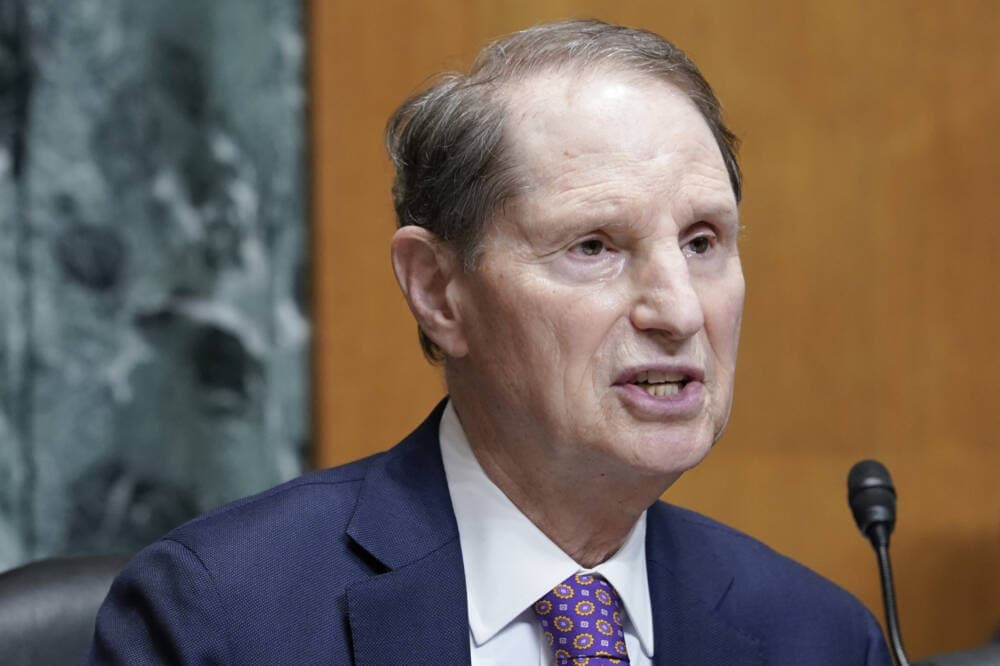Advertisement
Major organ center in Waltham flagged over low donation numbers
Resume
New England Donor Services, a Waltham-based nonprofit that coordinates organ donations and transplants for the region, earned an underperforming grade in the latest review by the federal government of the nation's organ recovery groups.
The scrutiny facing New England Donor Services and its peers comes as federal health regulators began to revamp a donation system they say is plagued by outdated technology, wasted organs and long waits for transplant patients.
In Massachusetts, nearly 4,800 people are languishing on waitlists for kidneys, livers, lungs, pancreases and hearts. There simply aren’t enough viable organs being recovered to meet the demand.
A key problem, according to the Centers for Medicare & Medicaid Services, is that the patchwork of nonprofits charged with recovering organs from people who recently died aren't collecting as many as they should. The federal agency, which partially funds these groups with taxpayer dollars, reports thousands of potentially-usable organs go unrecovered each year across the country.
Dr. Seth Karp, a transplant surgeon who directs the Vanderbilt Transplant Center, said organizations like New England Donor Services need to be held accountable.
“When you look at the data objectively, you just can't help but understand that there are some organ procurement organizations that are woefully underperforming — and patients are dying,” said Karp, who testified to Congress to insist that organ groups face more accountability.
"... There are some organ procurement organizations that are woefully underperforming — and patients are dying."
Dr. Seth Karp
New England Donor Services' underperforming grade, released in April, was an improvement over a failing grade it received last year.
Alexandra Glazier, CEO of New England Donor Services, defended the group's track record and disputes the federal characterization it is “underperforming.”
“We must continue to get better, because there are patients waiting. And so that urgency is real," she said. "But it doesn't mean that we have a broken system."
New England Donor Services and other groups have also been under congressional investigation. She called the criticism from federal lawmakers “shame and blame tactics.”
New England Donor Services, one of the country’s largest organ procurement organizations, or OPOs, employs more than 250 people. It serves Massachusetts, Connecticut, Rhode Island, Maine, New Hampshire and most of Vermont.
It’s one of 56 OPOs that hold a government contract to serve a specific geographic area, effectively giving it a monopoly in the region.
The organization reported an operating budget of nearly $80 million, according to a state audit in 2019. Glazier earned more than $506,000 that year in total compensation. It’s also one of the few organ recovery groups in the country to have its own private jet. The Cessna aircraft, which cost more than $5.6 million, is used to assist with organ recoveries and transports.
People suffer — even die — as they wait
Massachusetts is a leader in the field of organ transplants. The first successful kidney transplant took place at Brigham and Women's Hospital in 1954 — and the region's expertise has advanced transplant technology.
But the dire shortage of organs — in the state and across the country — means most patients who need a transplant will wait years to get one. Many can’t stand by that long. In Massachusetts, roughly 25 people die every month waiting for an organ transplant, based on federal data from the past three years.
Every patient’s story is different — but all share the anguish and uncertainty of not knowing if a life-saving organ will be available.
In 2015, longtime Cambridge childhood educator Betty Bardige started showing signs of the rare genetic heart condition that had stricken her brother and sister. Her family knew right away the only option would be a transplant. Betty’s son, Arran, said his mother registered for the transplant waitlist, and all they could do was hope she’d survive long enough to get a new heart.
Four years later, as Betty’s condition deteriorated, doctors told the family she might have better prospects of getting a new heart in New York than Massachusetts. Her son remembers the six months spent by her hospital bed in New York City thinking, “Is there going to be an organ? Is there going to be a transplant?”
It never happened. Betty died in December 2019 at the age of 69.
"What's stopping us is bureaucracy. That's what kills me."
Arran Bardige
Looking back, Arran said one of the hardest parts about her death is knowing the technology and medicine exists to save people like his mom. He said the “middlemen” or OPOs are part of the problem, because they aren’t recovering as many organs as they should be.
“What's stopping us is bureaucracy,” said Arran. “That's the thing that kills me.”
How organ recovery groups are ranked
New England Donor Services’ most vital role is the recovery of usable organs from suitable donors who have died in a hospital. Organs rapidly deteriorate when a person dies and must be transported quickly. With little time to spare, staff approach families raw with grief, get donation consent if needed and begin coordinating the collection and transfer of organs to the right transplant center.
Most organs are delivered to one of the 14 transplant centers in New England but some — especially kidneys — travel from other parts of the country.
Until 2021, procurement organizations, like New England Donor Services, self-reported how they performed the crucial task of recovering organs. To boost accountability, the Centers for Medicare & Medicaid Services (CMS) rolled out a new ranking system that classifies groups as high performing (tier 1), underperforming (tier 2) or failing (tier 3) based on federal benchmarks.
The country’s organ groups are measured using federal death certificate data. CMS looks at how many deceased donors each organ group secures in its region as well as how many recovered organs were transplanted.
This year’s CMS data show New England Donor Services earned a tier 2 or underperforming grade for its donation and transplant rates.
For last year’s failing grade, that was based on 2020 data, Glazier blamed the group’s ranking on the pandemic.
A small group in Connecticut managed by New England Donor Services also was labeled underperforming. A merger finalized between the two in 2021, and is reflected in this year’s rankings.
Glazier added that New England Donor Services has increased both its number of organ donors and its donation rate over the past two years.
Despite New England’s uneven federal rankings, Dr. Richard Formica, a kidney specialist and Yale’s transplant medicine director, said the group is doing a good job.
“Year over year, New England Donor Services has educated the public and medical professionals on the importance of organ donation,” Formica said.
In this year’s rankings, roughly three-quarters of the groups — including New England Donor Services — were classified as underperforming or failing.
Poor performers could lose their federal contract in 2026. Under the federal rules, failing organizations will be forced out by CMS; underperforming groups will face competition.
An industry repeatedly criticized for lax oversight

The entire organ donation system is under the microscope like never before. In 2020, Congress launched investigations in both chambers about the poor performance and lack of oversight in the transplant industry.
For decades, OPO executives have been allowed to serve on the boards that oversee them for the United Network for Organ Sharing, a private contractor that manages the country’s overall transplant system.
Glazier served on several boards, including the Membership and Professional Standards Committee. That board, which uses a peer-review process to monitor the industry, was criticized in the Senate Finance Committee’s investigation for its lax oversight. The Senate’s report found that of the roughly 440 patient safety complaints referred to the standards committee from 2010 to 2020, only one resulted in probation for an OPO.
The Senate also uncovered startling examples of deadly mistakes across the system.
“Organ transplant professionals repeatedly told the Finance Committee the complaint process was a ‘black hole,’ ” said Sen. Ron Wyden (D-Oregon) as he presented the committee’s findings. “Investigations and disciplinary measures rarely amount to much more than a slap on the wrist.”
Glazier said the oversight panel did its job, and that there was no conflict when she volunteered on the national group that reviewed complaints.
“Investigations and disciplinary measures rarely amount to much more than a slap on the wrist."
Sen. Ron Wyden
“I think that the issues that have been publicized are ones that make good talking points for politicians,” she said.
In March, the Biden Administration announced it would break up United Network for Organ Sharing's monopoly over the transplant system. The federal government will split up the group's responsibilities into separate contracts, to create more independence and transparency.
Fears that tissue donations detract from organ operations
Many OPOs, including New England Donor Services, have relied on revenues from the burgeoning industry of human tissue recovery. As they've done so, Congress has also probed whether these initiatives present potential conflicts of interests.
Tissues — like skin, bone, and tendons — that are recovered from donors can enhance patients’ lives. Corneas, for example, help people who are going blind. Tendons are used in sports surgeries.
But tissues are rarely used for immediate, life-saving procedures. The industry is less regulated than organ transplants — and much more profitable. Everything from cosmetic surgery to skin grafts have turned human tissue recovery into a multi-billion dollar business.
While many see tissue transplants as beneficial, congressional leaders worry that organ procurement organizations are diverting their attention away from their core responsibility to recover transplant organs.
A House oversight subcommittee stated it was concerned about “the potential impropriety and conflicts arising out of lucrative side businesses such as … tissue banks and processors” in a December 2020 request for information from 11 organ groups, including New England Donor Services.
New England Donor Services operates its own tissue bank, and it reported roughly $15 million in revenue from tissue recovery in 2019, according to state records. It received nearly $64 million from organ transplants that same year.
Glazier said the group continues to prioritize organ donation.
The final results of the House oversight committee’s investigation into New England Donor Services is unknown.
Rep. Ayanna Pressley (D-Mass), who served on the oversight investigation, declined to comment. The House committee has not published its findings and perhaps never will. When Republicans took back the House in last November’s midterm elections, they regained control of the oversight committee and have shown no interest in continuing the investigation.
This segment aired on April 27, 2023.